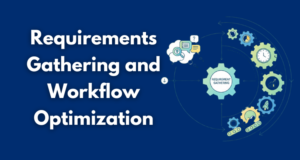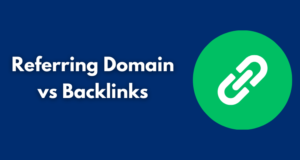Table of Contents
ToggleTable of Contents
- Introduction to HR Outsourcing
- The Challenges of Workforce Management
- Transforming HR From a Burden to an Asset
- Cost-Benefits and Efficiency Gains
- Access to Expertise and Technology
- Compliance and Risk Management
- Focus on Core Business Activities
- Conclusion: The Strategic Future of HR
Introduction to HR Outsourcing

Companies constantly look for strategies to optimize operations while cutting costs. One strategy, in particular, that has garnered attention is the decision to outsource HR functions.
By entrusting these responsibilities to external specialists, organizations can transform human resources from an administrative burden into a strategic asset. With more companies dipping their toes into the outsourcing waters, this trend signifies more than just a cost-saving measure; it’s a catalyst for transformation.
The plethora of responsibilities associated with managing a workforce, from recruitment to payroll management, often results in complex tasks that can overwhelm internal teams.
Coupled with the ever-evolving landscape of labor regulations and compliance requirements, it’s no wonder many businesses are choosing to relieve themselves of these challenges by outsourcing their HR functions.
This shift allows companies to regain focus on their core business objectives and drive growth through other strategic efforts.
The Challenges of Workforce Management

Workforce management in its traditional form has always been riddled with challenges. Among these are cumbersome tasks such as managing employee records, keeping track of benefits administration, and ensuring accurate payroll processing. These responsibilities can be daunting, especially for companies with limited internal resources dedicated to HR functions.
As businesses grow, these tasks grow increasingly complex, often consuming more time and energy than initially anticipated. In such cases, many organizations outsource specific HR functions to improve efficiency and reduce operational strain.
Furthermore, staying compliant with ever-changing employment laws and regulations adds another layer of complexity. Failing to meet these compliance standards can result in costly penalties and a loss of reputation.
This pressure can stifle innovation and impede growth, leading many to seek external help through HR outsourcing.
Transforming HR From a Burden to an Asset
HR outsourcing offers transformative opportunities for businesses looking to streamline their operations. Companies can redirect valuable resources towards more strategic initiatives by offloading time-consuming administrative tasks to external experts.
This realignment boosts operational efficiency and enhances the overall employee experience, as HR partners can focus on driving employee engagement and morale through targeted initiatives.
With these specialized providers at the helm, businesses can shift their internal focus from labor-intensive HR tasks to strategic planning and development, crafting a more forward-thinking approach that positions HR not as a burden but as a crucial component of the organization’s overall strategy.
Cost-Benefits and Efficiency Gains
Cost reduction is a significant advantage of HR outsourcing. Organizations experience substantial savings by eliminating the need to maintain a large in-house HR team and the associated overhead costs.
This restructuring allows for a reallocation of financial resources, which can be directed toward other areas of need, further enhancing business operations and growth.
Moreover, the move to outsourcing often results in efficiency gains. Streamlined processes facilitated by specialized providers often lead to faster turnaround times for HR tasks, reducing the bottleneck effect commonly associated with traditional HR departments.
The advanced technologies and software solutions these providers utilize enhance accuracy and efficiency, ensuring that HR functions are managed swiftly and effectively.
Access to Expertise and Technology
Another compelling reason to consider HR outsourcing is the access it provides to a wealth of expertise and technology. Outsourcing providers bring a team of professionals equipped with industry-specific knowledge and an array of cutting-edge tools.
These experts stay up-to-date with the latest trends and innovations in HR, ensuring that companies receive the most current and effective solutions tailored to their unique needs.
This expertise and technological prowess allow businesses to leverage sophisticated systems and tools that may be inaccessible due to budget constraints. By integrating these resources into their daily operations, companies can maintain a competitive edge and stay ahead of industry trends.
Compliance and Risk Management
Remaining compliant with labor laws and regulations is essential for any organization, but can be daunting in an ever-shifting legal landscape. HR outsourcing firms excel in this arena, constantly monitoring legislative changes and updating practices to ensure ongoing compliance for their clients. This vigilance significantly reduces the risk of non-compliance, which can lead to severe financial penalties and damaged reputations.
The peace of mind that comes from knowing compliance and risk management are in capable hands allows businesses to operate comfortably and confidently, focusing on strategic objectives without fear of legal repercussions.
Focus on Core Business Activities
Outsourcing HR functions gives companies a critical advantage in concentrating on core business activities. By transferring these responsibilities externally, companies free their internal resources to focus on strategic business growth, innovation, and sustainable development. This realigned focus enhances productivity, as employees can dedicate their efforts to projects that drive long-term success and value within the organization.
This strategic shift benefits the company and its employees, who experience a motivated and engaging workplace culture. Outsourcing enhances job satisfaction and retention rates by aligning individual roles with company objectives, contributing to a more robust organizational structure.
Conclusion: The Strategic Future of HR
HR outsourcing has evolved from a tactical decision to a strategic imperative for many organizations. By harnessing external expertise and cutting-edge technology, businesses can redefine how they manage their workforce, turning a traditional burden into a valuable asset.
With the flexibility and resources outsourcing provides, HR becomes a pivotal part of the organizational strategy, directly contributing to the company’s success.
As the business landscape changes and the demands on HR become more complex, HR outsourcing is an indispensable strategy for driving innovation, efficiency, and performance. Embracing the power of outsourcing can propel companies towards a future where HR serves as a function and a cornerstone of strategic success.









